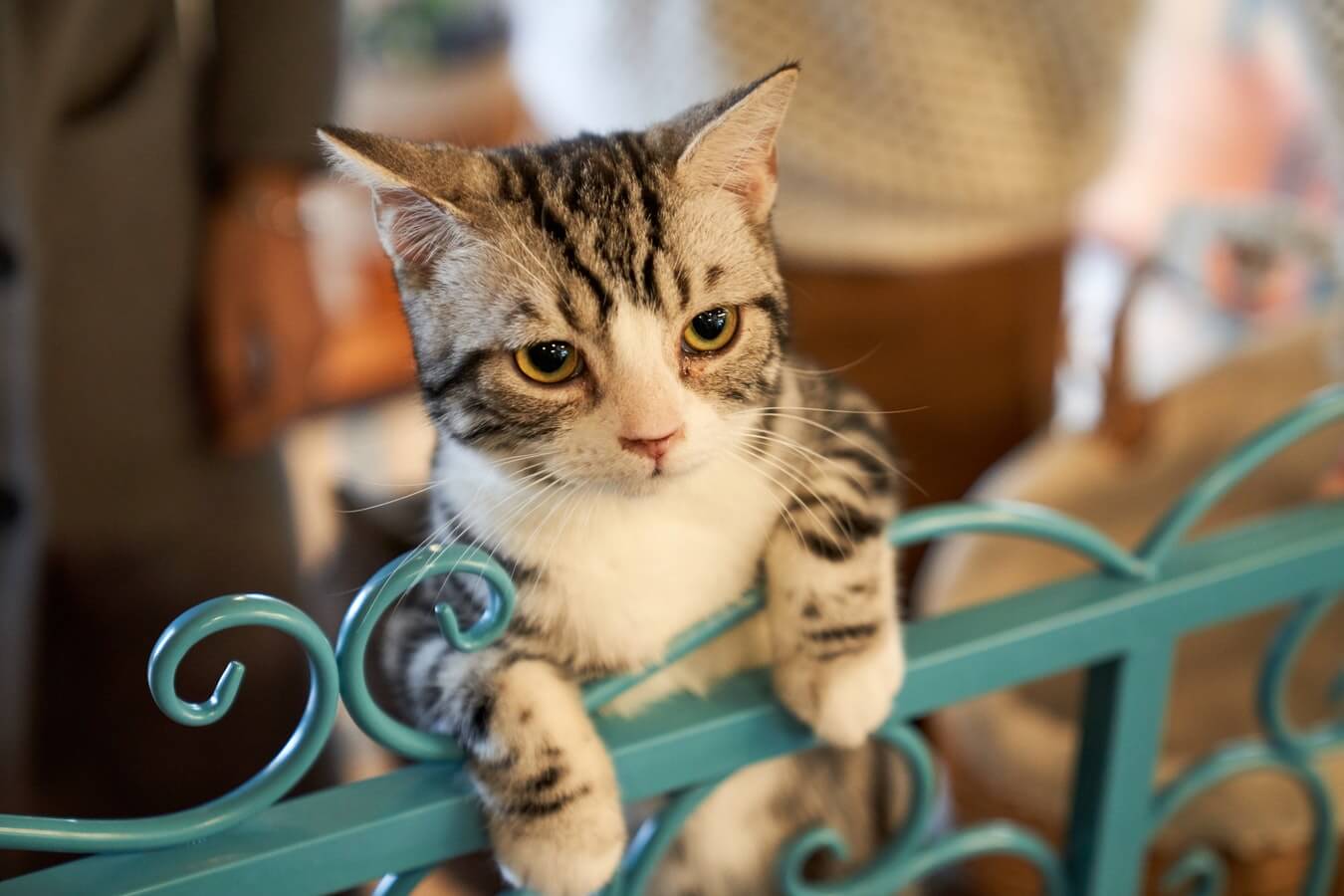
Cats pant, but it is not normal. Many of us have seen cat panting-shallow and rapid movement of the respiratory system as they open mouth and protruding tongue. Some cats pant due to stress as a result of car riding or after intense exercise. They will only pant after a short period. Mainly, they do as a cooling mechanism, if the weather is hot. Although they pant occasionally, it should be a concern. It can be a severe illness, and you should not ignore any signs.
Table of Contents
Why Do Cats Pant?
There are many reasons why cats pant. Commonly, it is due to environmental or respiratory problems such as anxiety, excitement, heat, fear and many more. If panting in cats is excessive it is it essential to check some of the underlying reasons. These include:
Respiratory Disorders
There may be a significant problem in the respiratory tract such as nasal blockage and growth in pharynx or nose. Additionally, there might be challenges due to the insufficient exchange of gases, pulmonary edema or asthma. Chest cavity disorder might also be the cause such as air and juicy masses in diaphragm or chest.
Anemia
The cat might be having low red blood cells, and insufficient oxygen is reaching many parts of the body.
Stress
It is a precondition for heart stroke. When a cat overheats, it tends to pant several times, to cool down. If your cat is panting several times during a hot day, it is wise to bring it indoors and turn on air conditioners or fans to cool it down. You can provide it with ice cubes or cold water to cool it down.
You May Also Interested In: Do Cats Drink Water?
Heart stroke
Another name for heart stroke in a cat is hyperthermia. You should not take it lightly this condition because it is life-threatening where all organs in the body shut down due to excessive temperatures. Excess temperatures can result because of locking your cat in a car for a long day or hot weather conditions.
Shock
Shock is a medical emergency that arises due to inadequate blood flow. Insufficient blood flow in a cat’s body will cause damage to internal organs. Shock is a definite sign of an actual illness. Shock may be due to poisoning, infection, blood loss, dehydration and so forth.
Cardiovascular Disorders
Cardiovascular disorders in cats are common causes of why cats pant. Hypertrophic cardiomyopathy is the heart problems in a cat that is a severe cause of panting. It causes high levels of intolerance in cats. Parasitic health problems such as heartworm disturb pulmonary mechanism which strains the heart thus panting. A cat may die even with minute symptoms.
Neurological Disorder
Ailments of the central nervous systems can affect the respiratory system in cats. There is a section in the brain that controls the functioning of respiratory organs. If this section is not working well due trauma, dysfunction in the respiratory organs and brain tumor the brain may give false impulse. As a result, a cat will experience shallow breathing and eventually pants
Hematological problems
This is health problems that are related to blood. Apart from anemia, there are inadequate iron or ferrous systems. It might occur due to a high level of carbon monoxide in the body that results in respiratory stress. For the cat to compensate inadequate oxygen in the body, they pants easily to inhale high volumes of air as much as possible Other problems that might make your cats pant are poisoning, abdominal pressure when pregnant as well as high altitude or excess fluids in the abdomen.
When To Worry
Check for other immediate symptoms such as coughing and breathing difficulties if you notice that a cat is panting excessively. There can also be a blue a color in cyanosis, the mucous membranes. Additionally, you have other reason to worry when the cat is panting such as diarrhea and vomiting, sudden and drastic weight loss, fatigue, lack of appetite, irritability and excessive drinking of water.
However, if the cat is panting due to the normal condition such as heat, anxiety, excitement, and so forth remove the stimulation factors and continue to observe keenly. If the panting continues then, you can now go ahead and carry out tests.
What To Do
After ascertaining that cat painting is a serious issue, it is essential to take it to a specialist. The first step is diagnosis which comprises clinical tests and history of panting. A veterinary doctor may recommend various laboratory tests to check the severity of the problem after determining the first hypothesis.
Carbon monoxide position, urinalysis, low blood count, and anemia may be the signs of a serious underlying issue. A doctor will carry out ultrasound electrocardiogram and chest x-rays to determine the condition.
A professional veterinary doctor will carry out these tests depending on the initial observation. After knowing the idiopathic or the cause of cat panting, they will suggest specific clinical examination such as heartworm testing, endocrinal & abdomen detection and endocrinal tests.
Treatment Options
A veterinary doctor will recommend several treatments when cats pant. Panting is a severe symptom itself. Various therapies may reduce the complexity of panting. However, there is a treatment of complete elimination of panting because it is not normal as it is in dogs.
A doctor will administer specific therapy upon confirmation of underlying condition. A doctor can treat minor signs such as coughing, weight loss, poor appetite, intolerance, lethargy before making any diagnosis. When a cat is dehydrated and has symptoms such as diarrhea and vomiting, a specialist will treat it using electrolytes. Anemic cats need a blood transfusion. There are specific medicines such as inflammatory drugs, antibiotics, and anti-parasitic drugs that a doctor will prescribe to your cat after concluding the diagnosis.
These drugs will treat the disease, and over time the cat panting will stop, and all the signs will disappear. There are also supportive treatments that go well with specific therapies. It comprises of natural home remedies and supportive supplements. It helps your cat with body physiology during disease recovery.
Also, It enhances quick recovery. Supportive medications include Respo-K which assists cats who suffer from respiratory problems, circulation and heart tonic helps cats with cardiovascular issues, and energy tonic is best for cats because it boosts levels of energy and enhances good feeling in cats.
Conclusion
You should not ignore when cats pants. When a veterinary doctor has confirmed and treats specific treatment, it is your turn to monitor its health regularly, follow all the prescriptions and evaluate each condition at any stage of recovery. Moreover, keep your pet in a stress-free and cold environment.
Share this:
- Click to share on Twitter (Opens in new window)
- Click to share on Facebook (Opens in new window)
- Click to share on Tumblr (Opens in new window)
- Click to share on Pinterest (Opens in new window)
- Click to share on Reddit (Opens in new window)
- Click to share on Telegram (Opens in new window)
- Click to share on WhatsApp (Opens in new window)
- Click to print (Opens in new window)
